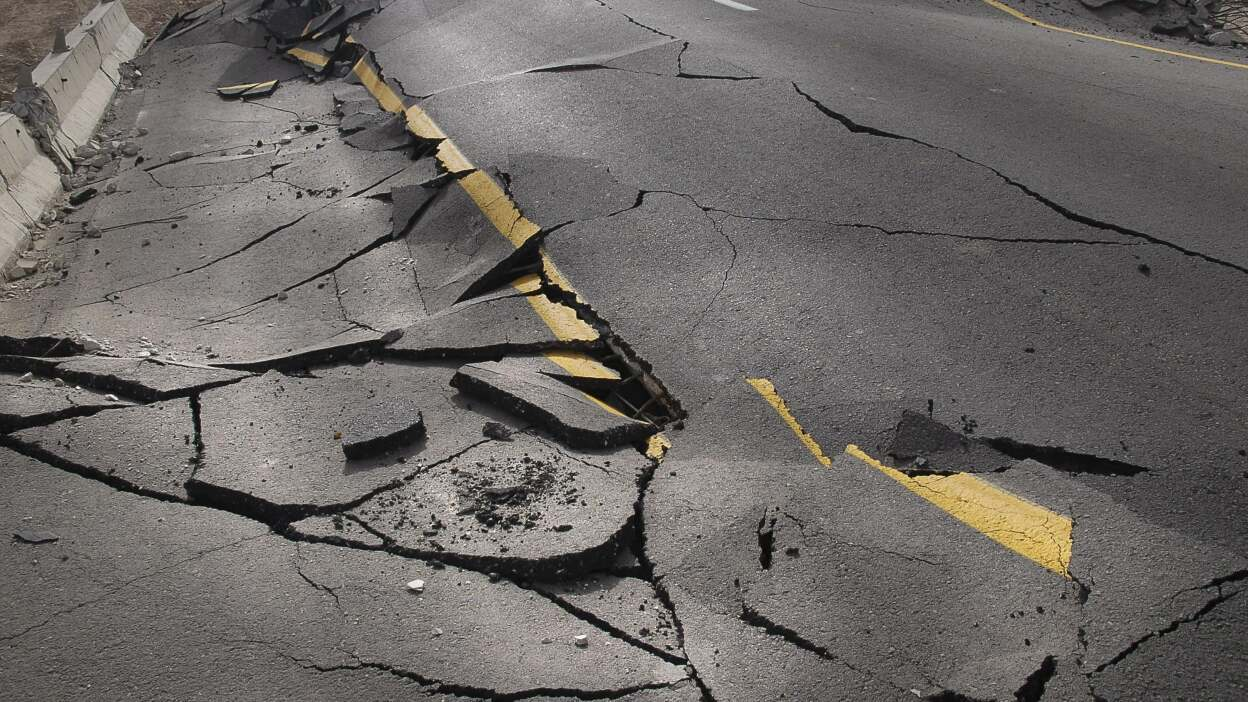
Natural disasters are those adverse events resulting from natural processes of the Earth. Examples of such events include earthquakes, hurricanes, tsunamis, floods, droughts and fires. Earthquakes are the most lethal of all them, claiming an average of 60,000 lives per year. But if you manage to hunker down in the right place when the ground starts shaking, you might be able to save yourself.
The safest place to be during an earthquake is probably in the middle of an open field with no trees around because the main danger from quakes is falling pieces. But since you will have no advance warning of an earthquake, staying safer may involve quick thinking, wherever you happen to be. If you are inside when the earthquake hits, think: “drop, cover, and hold on.”
Drop: Get down on your hands and knees when you feel the first shake. This way you won’t fall, and you’ll be ready to crawl (爬) under a nearby desk or table. Don’t try to run or walk for a safer area because you’re likely to fall. Exception: If you are in bed, stay there. Put a pillow over your head and wait it out.
Cover: Put one hand over your neck and head. Then crawl under a strong desk or table if one is nearby. If there isn’t one handy, crawl toward an internal wall, not an external wall. External walls have windows and windows are not good in this situation. Stay on your hands and knees with your hand covering your neck and to protect both your head and your vital organs.
Hold on: Hold on to your desk or table with one hand and keep the other over your neck and head. Be ready to shift with the desk or table you’re holding. Think to yourself, “how long can this go on? Surely it must stop soon!” but wait until it’s really stopped to move.
However, the “find something to hide under” strategy usually doesn’t apply if you’re outside, driving, or at the beach.
1.Which word can replace the underlined word “lethal” in Paragraph one?
A Deadly.
B Common.
C Potential.
D Vital.
解析:选A。A词义猜测题。根据划线单词后文的“claiming an average of 60,000 lives per year”每年平均夺去6万人的生命,可推知,地震应该是所有自然灾害中最“致命的”。故选A。
2.What should you do first when you feel an earthquake?
A Put your body close to the ground.
B Move forward on your knees.
C Run outside right away.
D Put a pillow over your head.
解析:选A。A细节理解题。根据第三段第一句的“Get down on your hands and knees when you feel the first shake. This way you won’t fall”可知,刚开始感受到地震时应该首先蹲下。故选A。
3.What CAN’T you depend on to cover yourself?
A Your hands.
B A firm table.
C An inside wall.
D An outside wall.
解析:选D。D细节理解题。根据第四段中的“not an external wall. External walls have windows and windows are not good in this situation.”可知不要依靠外墙,外墙有窗户,并不牢固。故选D。
4.What might be talked about in the following paragraph?
A How should you prepare for an earthquake?
B What should you do right after an earthquake?
C Is it possible to get an early warning for earthquakes?
D What should you do if you’re outside when an earthquake hits?
解析:选D。D推理判断题。根据文章最后一段中的“However, the ‘find something to hide under’ strategy usually doesn’t apply if you’re outside, driving, or at the beach.”然而,如果你在户外、开车或在海滩上,“找地方藏起来”的策略通常不适用。由此可推知,接下来将介绍在户外的应对地震的方法。故选D。